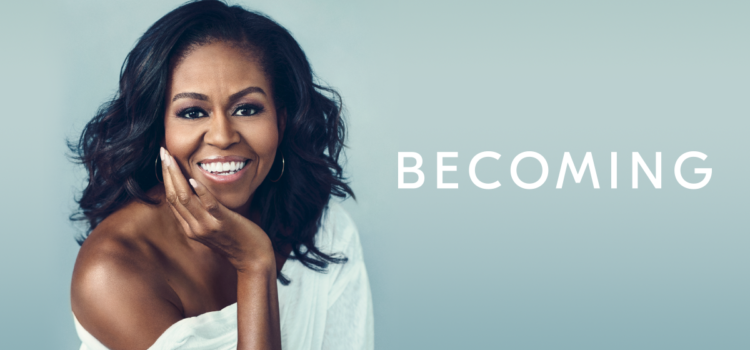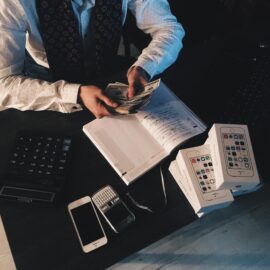

This article is an excerpt from the Shortform book guide to "Becoming" by Michelle Obama. Shortform has the world's best summaries and analyses of books you should be reading.
Like this article? Sign up for a free trial here .
Looking for quotes from Michelle Obama’s memoir Becoming? How can these quotes help you understand Michelle Obama’s life better?
Michelle Obama’s book Becoming documents how Michelle pushed herself to become successful despite having little support at school and coming from a poor neighborhood. Michelle hopes to inspire others with her story about overcoming the odds.
Continue on for quotes from Becoming.
Michelle Obama Quotes From Becoming
Becoming provides insights into Michelle’s self-determination: She pushed herself to excel in Ivy League classrooms and achieve a prestigious career by age 26, then mustered the courage to swerve off that path in search of greater fulfillment. It details her relationship with Barack—a love story of two opposites—and their challenging quest to navigate family and political life. Through it all, we witness a woman who perpetually strives to become a better version of herself. Below are five of Michelle Obama’s Becoming quotes.
“For me, becoming isn’t about arriving somewhere or achieving a certain aim. I see it instead as forward motion, a means of evolving, a way to reach continuously toward a better self. The journey doesn’t end.”
Michelle writes that “becoming” requires patience and belief in the future. It requires understanding that there is always more work to be done. And most of all, it requires optimism—”a form of faith, an antidote to fear,” she writes.
“Failure is a feeling long before it becomes an actual result. It’s vulnerability that breeds with self-doubt and then is escalated, often deliberately, by fear.”
Despite all these accomplishments, when she told her high school counselor that she wanted to apply to Princeton, the counselor told her that she probably “wasn’t Princeton material.”
The counselor’s words hurt, but Michelle refused to lower her aspirations. She decided not to let one person’s opinion budge her from her goal. She did exactly what her parents had taught her to do—strive to achieve what she wanted, even if it was a long reach to get there.
Michelle applied to Princeton and was accepted. She never went back to the counselor to say that she had been wrong. She had no need; Michelle proved to herself that she was capable, and that was the only affirmation she needed.
Michelle looks back on how she felt after meeting with this counselor and had she listened to the counselor’s advice, all the confidence gains she had made during high school would have been lost.
“Time, as far as my father was concerned, was a gift you gave to other people.”
Michelle credits her father, Fraser, for teaching her to work hard and keep her promises. Fraser worked for the city as a pump operator for the Chicago Water Department. He put on a uniform every day and showed up for work despite having multiple sclerosis (MS) since his 30s. Initially, the disease caused him to walk with a limp, but during Michelle’s childhood, the MS progressed. By the time Michelle finished elementary school, Fraser could only walk by using crutches; later, he used a wheelchair.
“Now that I’m an adult, I realize that kids know at a very young age when they’re being devalued, when adults aren’t invested enough to help them learn. Their anger over it can manifest itself as unruliness. It’s hardly their fault. They aren’t “bad kids.” They’re just trying to survive bad circumstances.”
Looking back, Michelle considers her mother’s advocacy a life-changing event. If she had stayed in that poor learning environment in second grade, her education might have been stunted. Michelle reflects that kids can see when they’re being devalued. They know when adults are giving their best to them and when they’re not. Unfortunately, many kids don’t have a mother like Michelle did—someone they can talk to and who can advocate for them. Instead, they respond by acting out. But it’s not their fault; it’s the fault of the adults who aren’t giving them 100 percent.
“When it came to the home-for-dinner dilemma, I installed new boundaries, ones that worked better for me and the girls. We made our schedule and stuck to it. …It went back to my wishes for them to grow up strong and centered and also unaccommodating to any form of old-school patriarchy: I didn’t want them ever to believe that life began when the man of the house arrived home. We didn’t wait for Dad. It was his job now to catch up with us.”
After counseling, Michelle realized that she could take steps to make her own life happier, and it didn’t have to be at Barack’s expense. Barack didn’t have to quit the job he loved or stop going to the gym to make more time for Michelle and the girls. Instead, for example, Michelle needed to start going to the gym herself, and she needed to find other ways to set healthy boundaries.
To simplify her life, Michelle stopped trying to accommodate Barack’s erratic schedule every day. Rather than waiting for Barack to get home, she kept a set schedule for the girls’ dinner time and bedtime. It was up to Barack to get home in time to see the girls before they went to sleep.
Barack, too, made adjustments based on what he learned from counseling, especially in terms of his day-to-day communication with Michelle. He even began working harder at being punctual.

———End of Preview———
Like what you just read? Read the rest of the world's best book summary and analysis of Michelle Obama's "Becoming" at Shortform .
Here's what you'll find in our full Becoming summary :
- How Michelle Obama went from the South Side of Chicago to the White House
- Why much of her success came from her being determined from a young age
- How Michelle Obama continues to push herself and discover new opportunities






